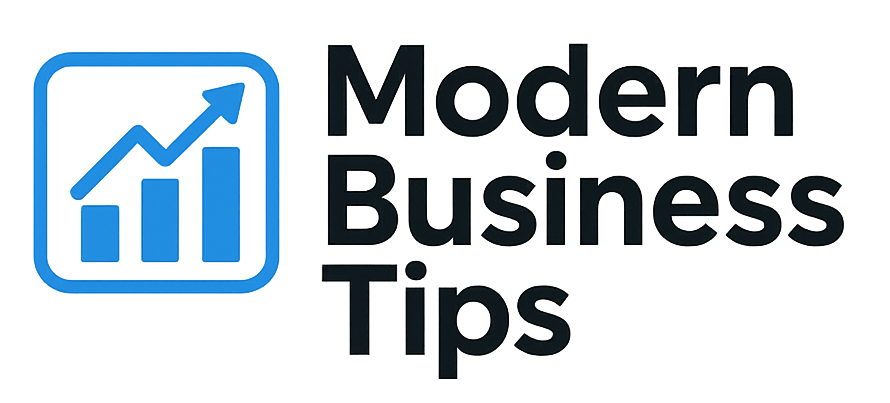Ever wondered what makes some companies stand out in 2025? It’s clear that AI plays a huge role. Companies using AI smartly are not just getting by; they’re doing great. With 78% of global companies using AI, it’s key to see how these strategies boost profits and growth.
In this article, I’ll show how AI is changing the game. I’ll talk about the AI strategies that keep businesses ahead. We’ll look at the benefits of AI and share stories of companies using it to stay on top.
Key Takeaways
- AI is a key tool for success in 2025.
- Knowing how AI works can increase profits.
- AI is changing how businesses operate.
- Real stories show AI’s power in business.
- Keeping up with AI trends is vital for success.
Understanding AI’s Role in Modern Business Landscape
Artificial intelligence (AI) is changing how businesses work. It’s key to know what AI means for business to use its benefits. AI systems do tasks that need human smarts, like solving problems and learning.
There are many AI uses that make businesses run better and make decisions easier.
What is AI in Business?
In business, AI has many roles. Machine learning gives insights from data. Natural language processing helps talk to customers better. Robotics automates tasks, making work flow smoother.
This mix leads to big improvements in how companies reach out to their customers.
Key AI Technologies Transforming Industries
Many AI technologies are changing industries now. AI algorithms analyze data to spot trends and guide decisions. AI chatbots offer quick customer help, boosting happiness.
Machine learning for predictive analytics lets companies see what’s coming and plan ahead. As more businesses use these tools, the future looks bright for AI.
Major Benefits of Implementing AI Strategies
Using AI in business offers many advantages across different fields. It makes operations more efficient and improves how we talk to customers. Companies that use AI are not just getting by; they’re doing well in today’s tough market.
Increased Efficiency and Productivity
AI is great at making things run smoother. It automates tasks that people used to do, so workers can do more important things. This means they can be more creative and strategic.
Studies show AI can save people about 2.5 hours a day. This lets them focus on tasks that really matter. Real-time data tracking and smart decision-making help keep things running well. This cuts down on wasted time and resources.
Enhanced Customer Experience
AI has changed how we understand what customers want. It helps businesses offer services that fit each person’s style and needs. This makes customers happier and more loyal.
By using AI, companies can guess what customers might need next. They can solve problems before customers even ask. This leads to happier customers and more business coming back.
Industries Leading the AI Adoption
Several industries are leading the way in AI adoption. They use AI to make operations smoother and improve customer service. Retail and healthcare are at the forefront, changing how we do things and bringing big benefits.
Retail and E-commerce
The retail sector has really taken to AI. It uses AI to understand what customers want, making shopping more personal. AI helps suggest products based on what you’ve looked at or bought before.
It also helps manage stock better. This means retailers can predict what they need and avoid running out of items.
Healthcare Innovations with AI
AI is changing healthcare in big ways. Hospitals use AI to predict how well treatments will work. This helps doctors make better choices faster.
AI also helps find health problems early and accurately. This leads to better care and outcomes for patients.
Case Studies: Successful AI Implementation
Artificial intelligence has changed many industries in big ways. Companies like Target and Netflix show how AI can make a difference. They use AI to make things run smoother and improve how they serve customers.
How Target Utilizes AI for Inventory Management
Target uses AI to manage its inventory better. This helps them guess what customers will buy and avoid having too much stuff. It makes sure they have what people want and cuts down on waste.
Netflix’s Personalized Recommendations Algorithm
Netflix uses smart algorithms to suggest shows and movies that fit what you like. This makes watching Netflix more fun and keeps people coming back. It shows how AI can make customers happier and help a business grow.
| Business | AI Application | Benefits |
|---|---|---|
| Target | AI in Inventory Management | Improved Forecasting, Reduced Waste |
| Netflix | Personalized Recommendations | Increased Engagement, Enhanced User Satisfaction |
Overcoming Challenges in AI Integration
Adding AI to current business systems is tough. It’s key to know these hurdles for a smooth move. Main problems often include tech issues and worries about the workforce, making it hard for many to use AI fully.
Technical Barriers to AI Adoption
There are many tech hurdles in AI use. Old systems not working with new AI can cost more and slow things down. High costs for setup and upkeep are common, needing big investments in new tech and training.
Lack of skilled people also blocks AI use. Without the right team, companies can’t get the most out of AI.
Addressing Workforce Concerns
AI worries mainly come from job loss fears. Workers think new tech might make their jobs disappear. This fear can slow down AI use and hurt productivity.
It’s vital to offer training to keep workers up-to-date. By encouraging learning, companies can ease these fears. This way, the human touch stays important in the workplace.
| Challenges | Details |
|---|---|
| Technical Barriers | System compatibility issues, high costs, lack of expertise |
| Workforce Concerns | Job displacement fears, need for employee retraining |
| Investment Requirement | Substantial upfront costs for infrastructure and software |
Essential AI Tools and Software for Businesses
In today’s fast-paced world, using AI tools is key for businesses to grow and work better. Many AI software options are available for different business needs, including those of small and medium enterprises (SMEs). Knowing about popular AI platforms helps businesses choose the right AI technology for them.
Popular AI Platforms for SMEs
There are many AI platforms designed for SMEs. Some top ones are:
- Salesforce Einstein – Helps improve customer relationships with AI insights.
- Microsoft Azure – Offers cloud-based AI services for various business needs.
- Google Cloud AI – Has machine learning tools for different uses.
Comparing AI Solutions: What to Look For
When looking at AI solutions, some key factors are important. Here’s what to consider:
- Scalability – Make sure the platform can grow with your business.
- Ease of Integration – Choose tools that easily fit with your current systems.
- Customization Options – See if you can adjust AI models to fit your business needs.
By looking at these points, businesses can pick the best AI software. This helps them improve how they operate.
The Future of AI in Business Operations
The world of business is changing fast, and AI is at the heart of it. Companies need to use new tech like predictive analytics to keep up. This helps them make smart choices based on data, improving how they work and stay ahead of the game.
Predictive Analytics and Decision Making
Predictive analytics is a big deal for businesses looking to improve their decision-making. It uses past data to spot trends and guide strategies in the moment. This way, companies can offer what customers really want, leading to happier customers and better sales.
Automated Processes and Workflow Enhancements
Businesses are turning to automation to get more done with less effort. It cuts down on mistakes and speeds up work. By automating routine tasks, teams can focus on creative and strategic work. This makes the workplace better and helps teams come up with new ideas that lead to success.
Strategies for Building an AI-Driven Culture
To build an AI-driven culture, you need a plan that focuses on training and solving problems creatively. Training employees well helps them use AI to its fullest. This approach boosts productivity and makes your company a leader in its field.
Employee Training and Development
Training programs are key to an AI-driven culture. They should cover all AI aspects, from basics to advanced uses. When employees grasp AI, they can make a real difference.
Companies that invest in learning can easily use AI in their work. This leads to better efficiency.
Encouraging Innovation and Experimentation
It’s important to encourage AI innovation and experimentation. This lets teams find new ways to use AI that fit their needs. I’ve seen how this leads to better customer service, new products, and improved services.
Ethics and Responsibility in AI Use
In today’s digital world, talking about AI ethics is key. Companies using AI need to be aware of the ethical issues. They must protect customer data and make sure AI is fair and unbiased.
Ensuring Data Privacy and Security
Keeping customer data safe is a big challenge for businesses. They must use strong privacy measures and follow the law. Being open about data use helps build trust and makes AI safer.
Good practices include regular checks, using encryption, and keeping data use short. This helps keep information secure.
Navigating Bias in AI Algorithms
Bias in AI is a big problem for ethics and fairness. If not watched, AI can show old prejudices, hurting some groups. To fix this, we need to check AI often and use diverse data.
Training teams to spot and fix biases is also important. This way, AI can be used responsibly and fairly.
| Aspect | Data Privacy | Bias in AI |
|---|---|---|
| Challenges | Data breaches, regulatory compliance | Replicating social prejudices, unfair outcomes |
| Best Practices | Encryption, data minimization | Diverse datasets, algorithm audits |
| Impact of Neglect | Loss of consumer trust, legal penalties | Social inequality, worsening social issues |
Conclusion: Embracing AI for Business Success in 2025
Looking ahead, AI will be key for business success in 2025 and beyond. Companies that use AI well will have big advantages. They can make processes smoother, improve customer service, and spark new ideas.
Key Takeaways for Immediate Implementation
Businesses should invest in the latest AI tech and tackle big issues like data privacy and bias. Creating a culture that values AI research and innovation is important. It keeps employees engaged and helps companies stay ahead in the AI race.
Looking Ahead: The Evolution of AI in Business
The future of business is tied to AI’s growth. I see AI making big changes in how we make decisions and work. It’s vital for companies to stay flexible and ready to change their plans as AI evolves.



